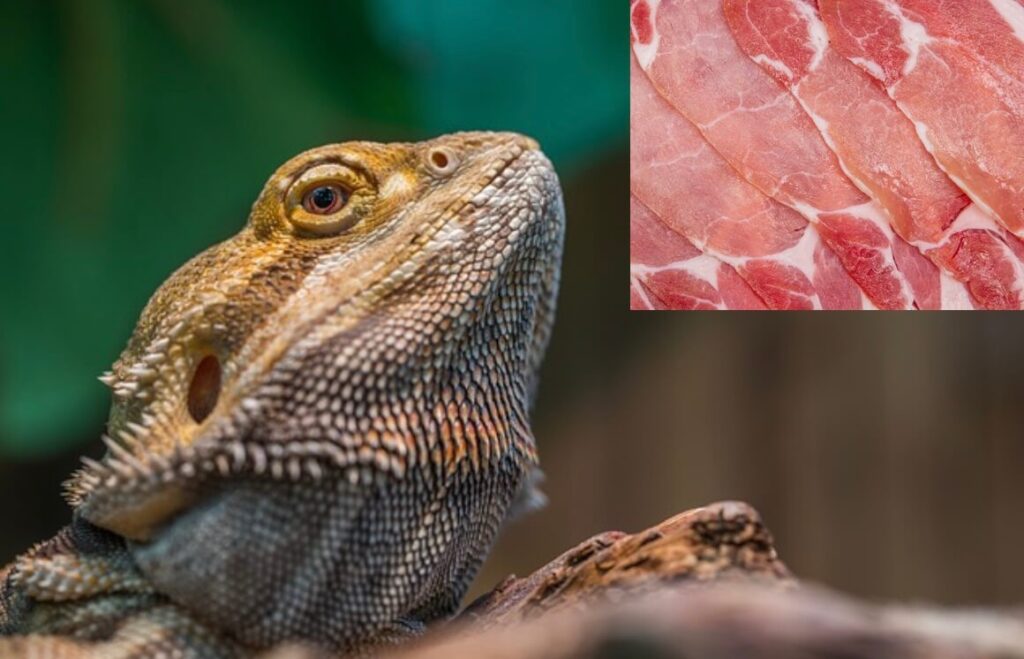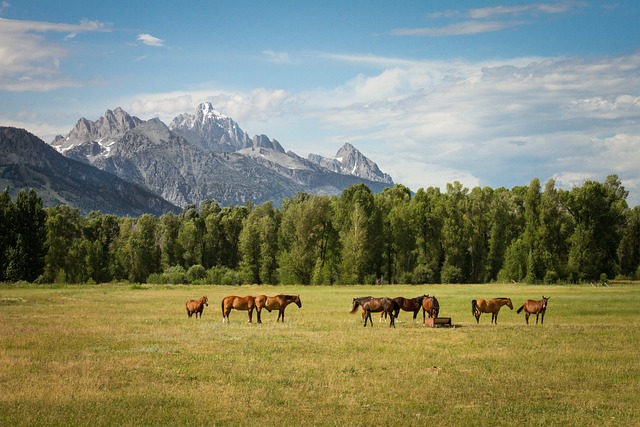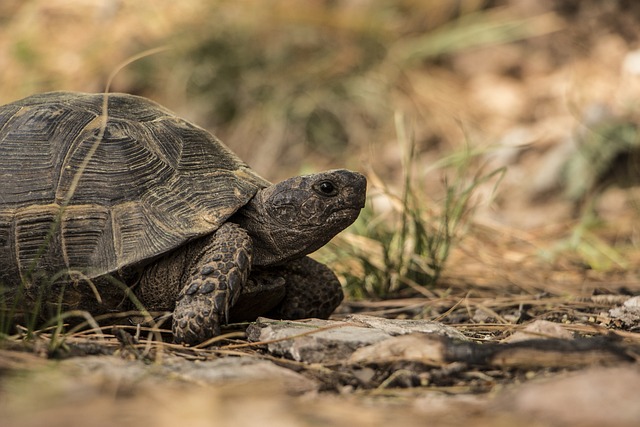If you’re wondering “Can bearded dragons eat ham?” the answer might surprise you. While it’s important for beardies to get protein in their diet, no, they should not and can not eat ham. Read on to learn why bearded dragons can’t eat ham and healthy alternatives sources for bearded dragons to get their protein.
Can bearded dragons eat ham?
- Can bearded dragons eat ham?
- Why can’t bearded dragons eat ham?
- What else should a bearded dragon not eat?
- Frequently Asked Questions (FAQ):
- What meats can bearded dragons eat?
- Can beardies eat scrambled eggs?
- Can bearded dragons eat cooked meat?
- Can bearded dragons eat chicken?
- Can Beardies eat cheese?
- What foods do bearded dragons love most?
- Can bearded dragons eat pizza?
- Can Beardies eat potatoes?
- Can bearded dragons eat mice?
- Can Beardies eat rice?
- Foods bearded dragons can eat:
- Getting your bearded dragon calcium:
- Vegetables to feed your bearded dragon:
- Insects to feed your bearded dragon:
- How often should you feed a bearded dragon?
- Recap: Can bearded dragons eat ham?
Why can’t bearded dragons eat ham?
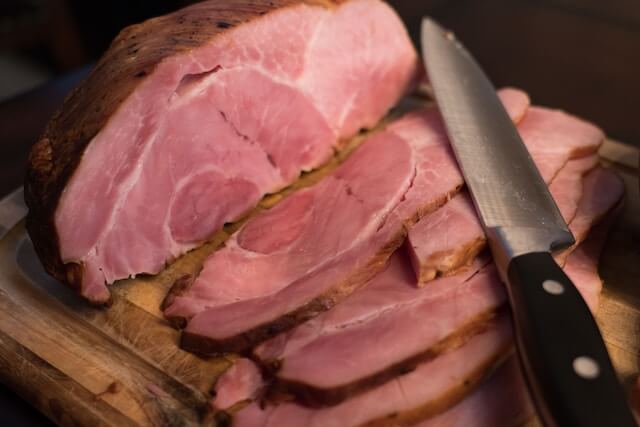
In general, highly processed foods won’t sit well with bearded dragons. They have sensitive digestive tracts, and ham is full of preservatives. If eaten in too large of quantities, it can even be toxic to your beardie. As well, ham provides almost no nutritional value for bearded dragons.
What else should a bearded dragon not eat?
Avoid feeding your bearded dragon:
- Onions
- Leeks
- Chives
- Mushrooms
- Garlic
- Acidic fruit like oranges, lemons
- Rhubarb (can be toxic to them)
- Avocados (surprisingly, these make them ill)
- Eggplant
- Insects caught in the wild (there may be pesticides covering them)
- Venomous insects
- Dairy
- Rice and grains of any kind
- Frogs or toads
Frequently Asked Questions (FAQ):
What meats can bearded dragons eat?
Some owners feed their bearded dragons raw meat like turkey, chicken breast, or minced beef because bearded dragons eat raw meat in the wild. However, bearded dragons in the wild get significantly more exercise than those that are pets. The practice of feeding meat to bearded dragons is contentious, if you do so, feed them meat in small quantities to see how their bodies react.
Can beardies eat scrambled eggs?
Yes, beardies can safely eat scrambled eggs. Remember not to mix in any additional ingredients that they can’t eat, and not to feed them more than roughly half an egg at a time.
Can bearded dragons eat cooked meat?
Yes, bearded dragons can eat cooked meat. However, this should be used as an emergency protein source as insects are what their bodies are used to.
Can bearded dragons eat chicken?
Yes, bearded dragons can eat chicken but it shouldn’t be a staple in their diet. You can feed them a small amount of chicken every few months, but stick to insects and plants overall to keep them healthy and happy.
Can Beardies eat cheese?
No – do not feed beardies cheese or any type of dairy. It isn’t good for them.
What foods do bearded dragons love most?
Bearded dragon’s favorite food would have to be live bugs, which is typically crickets or roaches.
Can bearded dragons eat pizza?
No, unless it’s a specially created pizza with foods they can digest. For starters, cheese is really bad for bearded dragons as they’re lactose intolerant, much less the other ingredients that make up a pizza. Avoid feeding bearded dragons pizza.
Can Beardies eat potatoes?
Yes, beardies can eat potatoes, although it’s recommended to only feed them potatoes sparingly as there could be nutritional issues if you make it a part of their regular diet.
Can bearded dragons eat mice?
Yes, beardies will occasionally eat mice or rats. However, it’s not recommended they eat them regularly as they’re hard to digest for them. Beardies often eat them as a matter of survival. Mice are not their first choice of food.
Can Beardies eat rice?
No, you should avoid feeding your beardie rice or grain of any kind. It’s very difficult for them to digest the starch and if given too much, can be fatal to them.
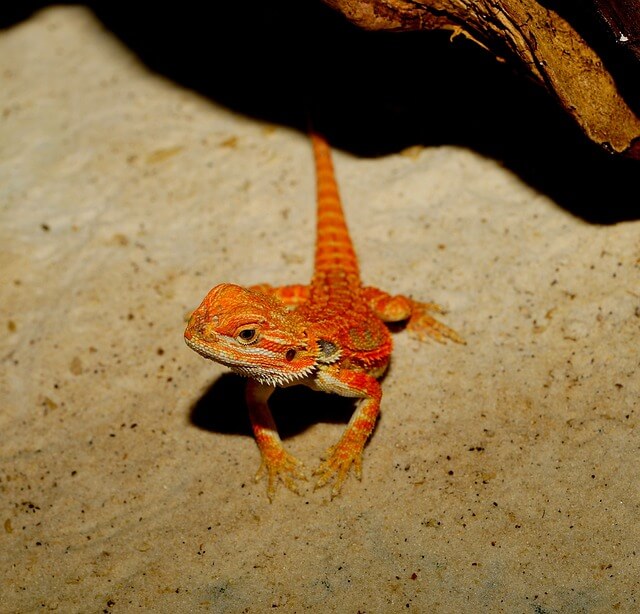
Foods bearded dragons can eat:
If you’re wondering what you should feed a bearded dragon, read our guidelines below. Bearded dragons are insectivores, which just means they thrive on insects as well as plant materials.
If you have a juvenile bearded dragon (between six and eighteen months old), give them about 80% vegetables and 20% live insects.
As your bearded dragon transitions into adulthood, give them the inverse, so 20% plant materials and 80% insects.
Getting your bearded dragon calcium:
Calcium is especially vital to a bearded dragon, especially a young one that is still growing. There are several ways to introduce more calcium into your beardie’s diet:
- Add in more high calcium vegetables like dandelions, bok choy, and collard greens.
- Dust calcium powder over their insects and vegetables to increase calcium levels.
- Make sure they’re getting their 12 hours of UVB exposure as they need this light to be able to properly absorb nutrients.
Vegetables to feed your bearded dragon:
- Peas
- Dandelion
- Green beans
- Cabbage
- Zucchini
- Pumpkin
- See our full list of vegetables to feed your bearded dragon
Note: Bearded dragons can also eat fruit in moderation. See here for a complete list of fruits bearded dragons can eat.
Insects to feed your bearded dragon:
- Crickets
- Kingworms
- Waxworms
- See our full guides to insects you can feed your bearded dragon and worms to feed your bearded dragon
Quick note: Live insects raised by you or bought from the pet store are best because they’re definitely pesticide free.
How often should you feed a bearded dragon?
During the first 3-6 months of your beardie’s life, try to feed them four to five times a day by giving them as many insects as they’d like in 10 minutes. They’re growing and need lots of protein during this stage.
Reduce the number of feedings to about two to three times a day when they’re growing into their juvenile years (between six and eighteen months).
As they become an adult, you can feed them once daily.
Recap: Can bearded dragons eat ham?
- No, bearded dragons should not eat ham. It’s potentially toxic for them and provides no nutritional value.
- Feed them insects and plants as part of a healthy diet.
For our full list of food to feed a bearded dragon, see our guide here.
Related articles:

